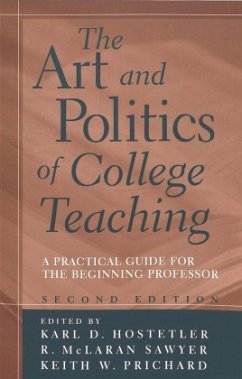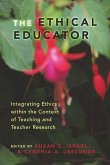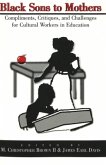In their programs, doctoral students learn their academic discipline. Less frequently are they taught how to be professors. New professors may have little if any knowledge about the different sorts of academic institutions in which they might obtain positions, the steps to be taken to secure a good job and be successful in it, and the legal and ethical dimensions of college teaching. This book offers graduate students and new professors some practical advice about how to negotiate their way through these often complicated issues. The book is written in essay style and presents the candid views of a number of new and experienced faculty members and administrators from across the United States.
«With education as a point of national focus, the attention of colleges and universities will be directed inward as these institutions ask themselves, 'How can we do better'? The answer can be found among the insights on these pages.» (M. A. Massengale, University of Nebraska)
«[This book] offers prudent advice on shaping and building a career in higher education. I wish it had been available twenty-five years ago.» (Gene Budig, University of Kansas)
«From the many comments, criticisms, ideas, and musings offered by some of our premier faculty at today's institutions, we learn that teaching is important and that it is much more of an art than it is a perfunctory set of skills that sum up to a job.» (Jane Margaret O'Brien, Hollins College)
«Many useful topics are covered, ranging from how to get your first job to preparation for retirement, with intermediate discussions of teaching, publishing (and not perishing), service on committees and associations, promotion and tenure, dealing with students and colleagues, ensuring benefits, legal rights and responsibilities, and how to leave a job gracefully.» (Jasper D. Memory, University of North Carolina)
«[This book] offers prudent advice on shaping and building a career in higher education. I wish it had been available twenty-five years ago.» (Gene Budig, University of Kansas)
«From the many comments, criticisms, ideas, and musings offered by some of our premier faculty at today's institutions, we learn that teaching is important and that it is much more of an art than it is a perfunctory set of skills that sum up to a job.» (Jane Margaret O'Brien, Hollins College)
«Many useful topics are covered, ranging from how to get your first job to preparation for retirement, with intermediate discussions of teaching, publishing (and not perishing), service on committees and associations, promotion and tenure, dealing with students and colleagues, ensuring benefits, legal rights and responsibilities, and how to leave a job gracefully.» (Jasper D. Memory, University of North Carolina)








